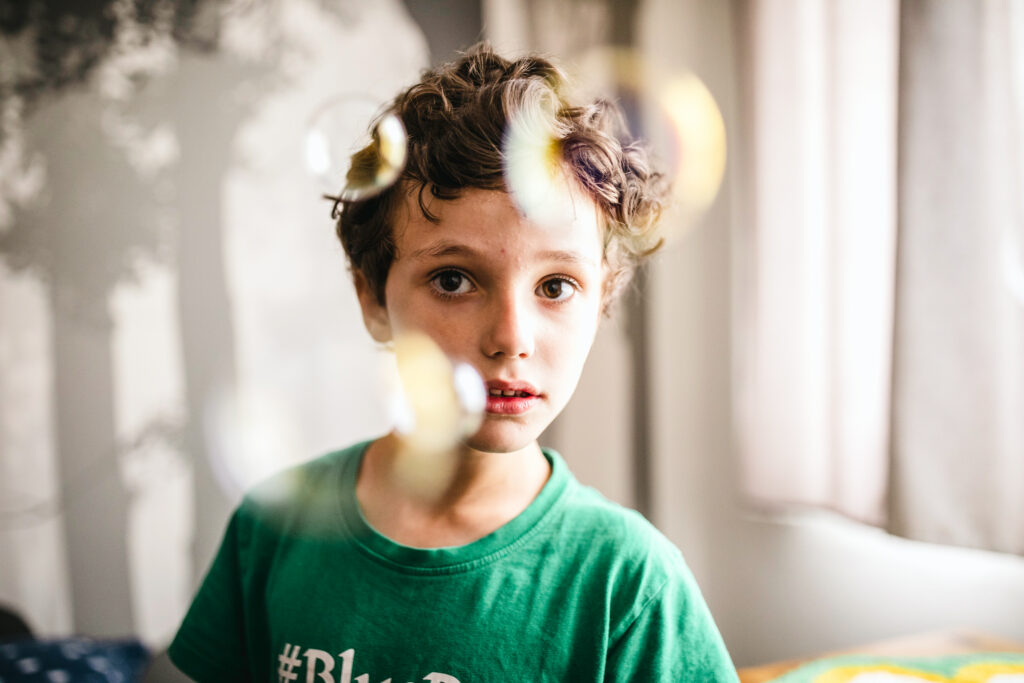
Introduction
Děti úplňku is a non-profit organization based in the Czech Republic, established by a group of parents and professionals to advocate for the rights and needs of families raising children and adults with severe forms of autism and intellectual disabilities in 2017. The organization emerged out of a growing frustration with the lack of adequate support and services for individuals with complex care needs, particularly those whose behavior is considered challenging or difficult to manage within standard systems of care.
The name „Children of the Full Moon“ comes from a documentary film that showed the lives and struggles of these families. The film was a powerful catalyst that brought attention to the urgent need for systemic change, and from this movement, the organization was formally born.
Making a Difference
The mission of Děti úplňku is to improve the quality of life of children and people with intellectual disabilities and autism and their families through advocacy, awareness, and the development of support systems that are dignified, inclusive, and accessible. They aim to ensure that people with high-support needs are not excluded from society and can live fulfilling lives with appropriate care and community integration.
Main Activities
1. Advocacy for Systemic Change
Děti úplňku works at the national level to push for changes in public policy, legislation, and the structure of social services. Their advocacy focuses on:
- Ensuring that social services are inclusive and tailored to individuals with complex behavioral needs.
- Pressuring government agencies to allocate appropriate funding to services for people with severe disabilities.
- Collaborating with ministries, lawmakers, and experts to create more humane and effective care models.
2. Raising Awareness
The organization leads public campaigns to combat stigma and ignorance surrounding autism, especially the more severe forms. We produce educational materials, documentaries, and media content that highlight real-life stories of families and individuals living with autism. Our awareness work is vital in shifting public attitudes and encouraging empathy and understanding. The campaigns with the greatest public impact were The Year of Dignity and Netlum.
3. Support for Families
Děti úplňku provides guidance, counseling, and resources for families caring for individuals with autism. This includes:
- Helping families navigate the social and health care systems.
- Offering legal and advocacy support.
- Promoting peer-to-peer networks and experience sharing.
In 2025, the Advocacy Support Center was established—a multidisciplinary team dedicated to helping individuals and families who face discrimination or other limitations imposed by the social system.
4. Innovation in Social Services
Recognizing the limitations of existing systems, Děti úplňku actively develops and tests new models of care that better reflect the needs of people with autism. They emphasize:
- Small, community-based residential services over large institutional facilities.
- Person-centered care that respects individual dignity and autonomy.
- Training and educating professionals to be more competent in autism-specific care.
This includes founding a model residential service for people with challenging behavior and autism which will use the principles of PBS in Měšice in central Bohemia. Another key initiative in this area is the introduction of homesharing in the Czech Republic. Děti úplňku launched a pilot project, played a leading role in developing a national framework, and currently support around 25 families through this model. They are actively recruiting new host families and preparing both hosts and families to participate in the program.
5. Education and Training
An essential part of Děti úplňku’s work is providing education and training in the PBS (Positive Behavioral Support) approach, both for professionals and families. They organize courses, workshops, and seminars to enhance the knowledge and skills of those involved in the care of people with autism. These training sessions with both foreign and Czech lecturers focus on implementing PBS strategies effectively to support individuals with challenging behaviors, promoting positive outcomes through prevention and intervention. Additionally, the organization offers education in self-advocacy, empowering both individuals with autism and their families to stand up for their rights and needs.
Funding
Děti úplňku is funded through a mix of private donations, public grants, and partnerships with foundations. They rely heavily on the support of individual donors and the broader public, especially for their advocacy and awareness efforts.
Impact
Since its founding, Děti úplňku has significantly contributed to reshaping the public debate around autism in the Czech Republic. Throughout many courses, public actions and media campaigns we have influenced policy discussions, inspired new social service initiatives, and brought hope to many families who had previously felt marginalized or ignored by the system.